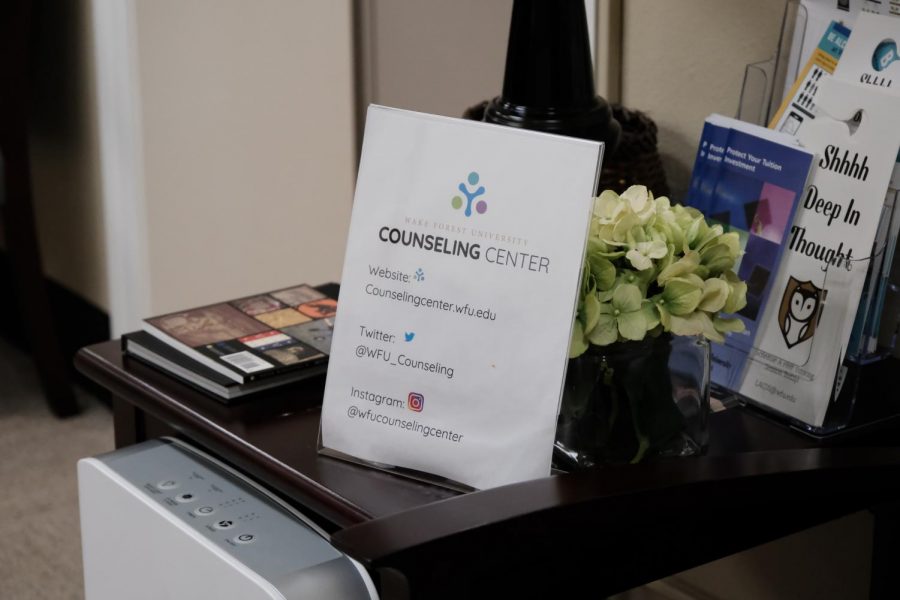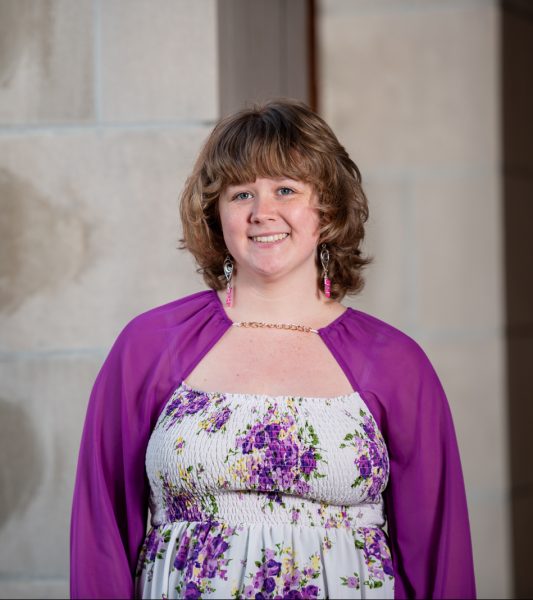UCC will return to long-term care in spring 2022
Wake Forest will also partner with an off-campus tele-health provider to ensure care beyond the UCC
The University Counseling Center will return to its pre-rapid access treatment model starting next semester, according to Director Dr. Warrenetta Mann. The university will also offer free tele-health sessions.
December 2, 2021
The rapid access model currently used at the University Counseling Center will not be in effect to begin the spring semester, according to University Counseling Center Director Dr. Warrenetta Mann.
Mann supported the rapid access model, as it was intended as a way to quickly give access to students facing short-term difficulties. Rapid access treatment was implemented after midterms and before finals, as this is considered a “high-demand time” in the center.
“Rapid access was a temporary thing,” Mann said. She stressed that the treatment model was intended to allow for more appointments to be made during a particularly high-stress period of the academic year. It was never intended to be a permanent structure — something that Mann said often got lost in translation between students and the UCC.
Starting in the spring, the UCC will revert back to its old structure that it had used before the rapid access model. This structure allows students to contact the UCC and schedule appointments in advance and for more regularity in counseling center visits, which was the primary concern of students regarding the rapid access model.
Before Thanksgiving break, President Susan Wente also announced that the university will be partnering with TimelyCare, a telehealth provider. This service will be a part of the care model at the UCC throughout the Spring 2022 semester. The goal is that, with this addition, students will be able to more readily access quality care.
“We know the pandemic has had a significant impact on the mental and emotional wellbeing of college students across the country,” Wente said.
Sophomore Hasan Pyarali referred to the implementation of TimelyCare as “something that students are really looking forward to.”
Now, one of the biggest challenges is easing the tension between students and the UCC as these changes occur. Coming off of the rapid access model, many students are wary of the possibility of more changes. The University Counseling Center has been a prominent topic on campus throughout much of the Fall semester.
Discussion around the center remains often in a negative light as students become frustrated with the changes that have occurred within treatment options for students.
In response to this, Mann assured the Old Gold & Black that there will be “no more changes for this year” once the UCC reverts back to its original method of treating students. In the spring, students should also expect any changes in the method of treatment at the UCC, either. Additionally, appointments may now be made on a normal basis, according to Mann.
Additionally, Mann states that she believes many students do not have a full understanding of what the UCC offers or how it is intended to be used.
“I do not want students to continue to be confused,” Mann said regarding treatment at the center.
Pyarali said that the communication between the center and students has been “lackluster.” He remarked that many students “needed therapy and didn’t go, because they thought that they wouldn’t be seen” after the announcement of changes from the UCC.
“That’s not the students’ fault. It is entirely the UCC’s fault,” Pyarali said.
The UCC itself has been understaffed this past semester, and it has not been able to hire new counselors to fulfill student needs due to a nationwide care worker shortage. These staffing shortages and an influx of students needing support have made the role of the UCC a difficult one to fill. Different tactics have been used to combat this issue.
One tactic the UCC implemented was the rapid access therapy model, which would only allow students to make same-day appointments on a first-come, first-served basis. This structure was implemented as a way to prioritize students that first made appointments and wished for short-term care.
The transition to this mode of treatment was announced through an Instagram post that used the language of break-up three weeks prior to when the change took effect. Many students found this to be distasteful, and they voiced their opinions in multiple different ways, including sending in comments to the Old Gold & Black.
In addition to the shock surrounding the suddenness of the news, students also held many concerns regarding the new treatment design. Many believed that this design neglected the fact that many students on campus need more long-term options. For those students, off-campus resources were suggested. But, access to these resources is often limited for a variety of reasons.
Students can visit counselingcenter.wfu.edu to find out more information regarding its services, as well as to get information regarding appointments. Currently, appointments are only available virtually. However, this may change next semester as the UCC continues to follow shifting guidelines during the pandemic.
If students want to make an appointment at the UCC, they can call 336.758.5273 during regular business hours. This same number can link students to emergency crisis assistance 24 hours a day.























